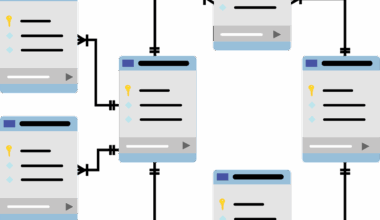Future of Chatbot Marketing in Digital Finance
In today’s rapidly evolving digital landscape, chatbot marketing has become a cornerstone of customer engagement strategies, particularly within the financial sector. As consumers increasingly adopt digital platforms for banking, investing, and managing their finances, chatbots serve as indispensable tools. They offer personalized support and solutions at any time, effectively transforming user interactions. By utilizing artificial intelligence, chatbots can handle an array of inquiries, from simple tasks like account queries to complex financial advice. This shift towards automated communication creates an opportunity for financial institutions to improve their customer service while reducing operational costs. The design of these chatbots can reflect a brand’s values and aesthetic, enhancing the overall user experience. Nevertheless, there are challenges to consider when integrating chatbots into digital finance. Issues such as data security and user privacy are critical. Customers must feel safe providing sensitive information. Therefore, robust security protocols are necessary to ensure trustworthiness. In conclusion, with a strategic approach, integrating chatbots can lead to more streamlined services, ultimately resulting in greater customer satisfaction and retention.
As chatbot technology continues to advance, its capabilities within financial marketing will expand. One promising area is the incorporation of machine learning algorithms, which enable chatbots to learn from interactions and improve their responses over time. This process leads to enhanced customer interactions as chatbots become increasingly adept at understanding specific user needs. Moreover, chatbots can gather valuable data from these conversations, providing insights into customer behavior, preferences, and trends. Utilizing this data, financial institutions can tailor their services and marketing strategies to meet customer demands more effectively. Companies can adopt a proactive approach to customer engagement, providing timely recommendations based on historical interactions. With 24/7 availability, chatbots are positioned to assist customers outside traditional banking hours, significantly enhancing user experience. Additionally, the seamless integration of chatbots with other digital marketing tools leads to more cohesive and well-rounded marketing campaigns. As consumers become more accustomed to these technologies, their expectations for instant communication will continue to grow. Thus, the future of chatbot marketing in digital finance will hinge on their ability to adapt and innovate in response to evolving consumer preferences.
Enhancing Customer Engagement
Chatbots are poised to revolutionize customer engagement, particularly in the finance sector. By offering instant responses to inquiries, they minimize wait times and keep customers satisfied. This speed is crucial in a world where customers expect swift resolutions. Unlike traditional customer service methods, chatbots can simultaneously assist multiple users, ensuring efficient handling of a high volume of requests without diminishing quality. This is especially beneficial during high-demand periods, like tax season or financial crises, when customer inquiries typically surge. Furthermore, chatbots can personalize interactions using stored data, greeting customers by name and referencing past transactions. This personalized touch creates an experience that customers appreciate. Moreover, integrating chatbots into marketing strategies enables financial institutions to facilitate targeted ads based on customer behavior. For instance, if a user frequently inquires about investment options, they could receive tailored suggestions. As chatbots continue to evolve, they could even engage customers with proactive notifications about account activities or emerging market trends. This level of engagement builds deeper customer relationships and fosters loyalty, positioning companies to thrive in a competitive landscape.
You must also consider the ethical implications surrounding chatbot marketing in finance. As customer interactions become increasingly automated, financial institutions must prioritize transparency regarding data usage. Customers should have clear insights into what data is collected and how it is utilized. For instance, if chatbots analyze personal financial behaviors to enhance services, informing users of these processes can build trust. Another key concern is the impact of chatbots on employment within the finance sector. While they undoubtedly streamline processes, a balance must be struck to avoid excessive job losses. Organizations should use chatbots as supplementary tools, allowing human agents to focus on handling complex inquiries requiring human empathy and understanding. Furthermore, legal regulations governing data protection and privacy, such as the GDPR, must be adhered to. Institutions should remain vigilant against potential breaches that could compromise user information. The future of chatbot marketing in financial services hinges not only on technological advancements but also on how companies navigate these ethical challenges. Businesses that prioritize ethical practices will position themselves as trustworthy leaders in the digital finance space.
Integrating AI with Chatbots
A significant trend in chatbot marketing within the finance sector is the integration of advanced AI technologies. These innovations can significantly enhance the capabilities of financial chatbots. For instance, employing natural language processing (NLP) allows chatbots to understand and interpret user queries more effectively. This understanding leads to more relevant responses, enriching the overall customer experience. The ability to analyze context and sentiment further empowers chatbots to deliver personalized recommendations. When a user expresses frustration or confusion, the chatbot can recognize this and escalate the interaction to a human agent, ensuring a seamless transition for the customer. Additionally, AI integration can facilitate predictive analytics, enabling chatbots to forecast customer needs based on past behaviors. These insights help financial institutions anticipate user inquiries, resulting in proactive responses. Consequently, chatbots become key assets in building customer loyalty, as they consistently deliver value. Furthermore, as AI continues to evolve, the capabilities of chatbots are expected to expand dramatically, paving the way for even more sophisticated interactions. Engaging customers effectively will increasingly rely on these technological advancements.
While the future of chatbot marketing in digital finance appears bright, there remain practical challenges that need addressing. Implementing chatbot solutions requires substantial investment in technology and training, particularly for large financial institutions. These organizations must develop robust infrastructure to support chatbot functionalities while ensuring security measures are in place. Adopting chatbot marketing strategies across multiple platforms can also create inconsistencies, making it essential to maintain a unified customer experience. Conducting extensive testing and user feedback collection is crucial to optimize chatbot performance and user satisfaction continuously. Furthermore, companies must establish clear metrics to measure the effectiveness of their chatbot functionalities to refine strategies for better results. This ongoing evaluation process ensures that chatbots continue meeting evolving customer expectations. As competition intensifies in digital finance, organizations that succeed in effectively integrating chatbots into their marketing will stand out. Moreover, embracing a culture of innovation will position businesses to lead in this evolving landscape. The financial sector is on the precipice of transformation, and those who adapt will benefit significantly from harnessing chatbot marketing capabilities.
Conclusion
In summary, the future of chatbot marketing in digital finance is filled with opportunities and challenges. Chatbots will continue transforming how financial institutions engage with customers. By providing instant support and personalized experiences, these tools have the potential to enhance customer satisfaction while streamlining internal processes. Integration of AI technologies will further strengthen chatbots, allowing them to respond more intelligently to user inquiries. However, addressing ethical considerations and ensuring data security is crucial for building trust among users. Companies must also remain adaptable to changing technological landscapes. Continuous improvements based on data insights and user feedback will shape the evolution of chatbot functionalities. Only through strategic implementations and ethical practices can financial institutions truly realize the benefits of chatbot marketing. Organizations that embrace these changes will not only enhance customer relationships but also foster loyalty in an increasingly competitive digital finance environment. Therefore, developing effective chatbot strategies should be a priority for all players aiming to secure their position in the future of finance.


